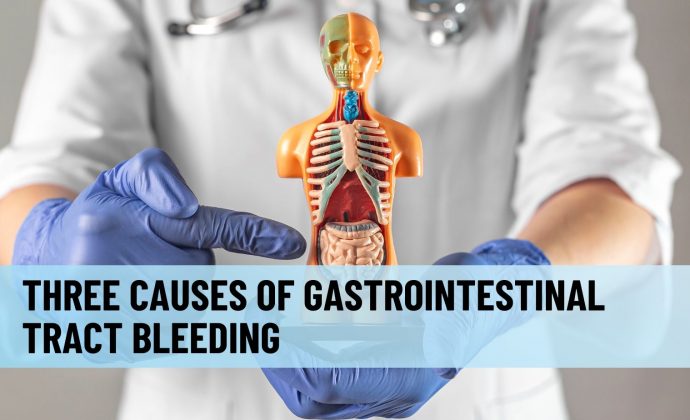
THREE CAUSES OF GASTROINTESTINAL TRACT BLEEDING
Gastrointestinal bleeding can be experienced by adults and children. The causes of gastrointestinal bleeding in the adult group are quite varied.
Prof. Ari Fahrial Syam, MD, MMB, PhD, FACP, FACG revealed that upper gastrointestinal bleeding has a higher mortality rate than lower gastrointestinal bleeding. Based on his research in 2001-2005 and 2010-2013, it is known that three things most often cause upper gastrointestinal bleeding.
Esophageal varicose veins rupture
Esophageal varices are abnormal enlargement of the blood vessels in the esophagus. Bleeding occurs when these abnormally enlarged blood vessels burst. In Indonesia, esophageal varices are often caused by liver cirrhosis or liver damage due to hepatitis B or hepatitis C. In Western countries, such as the United States, liver cirrhosis is mainly caused by the consumption of alcoholic beverages.
Stomach ulcer
The second most common cause of upper gastrointestinal bleeding is a gastric ulcer. The problem with gastric ulcers is related to enzymes.
Duodenal ulcer
In Indonesia, this problem is known as a duodenal ulcer. Ulcer on the duodenum wall is caused by infection with the bacterium Helicobacter pylori.
Meanwhile, one of the most common causes of lower gastrointestinal bleeding in adults is hemorrhoids. About 40 percent of bleeding in the lower gastrointestinal tract is caused by hemorrhoids. Then the second, there are patients with polyps. Furthermore diverticulosis, and can also be due to cancer.
Image Source: Valiantsin-suprunovich





 Users Today : 744
Users Today : 744 Total views : 2223588
Total views : 2223588 Who's Online : 3
Who's Online : 3